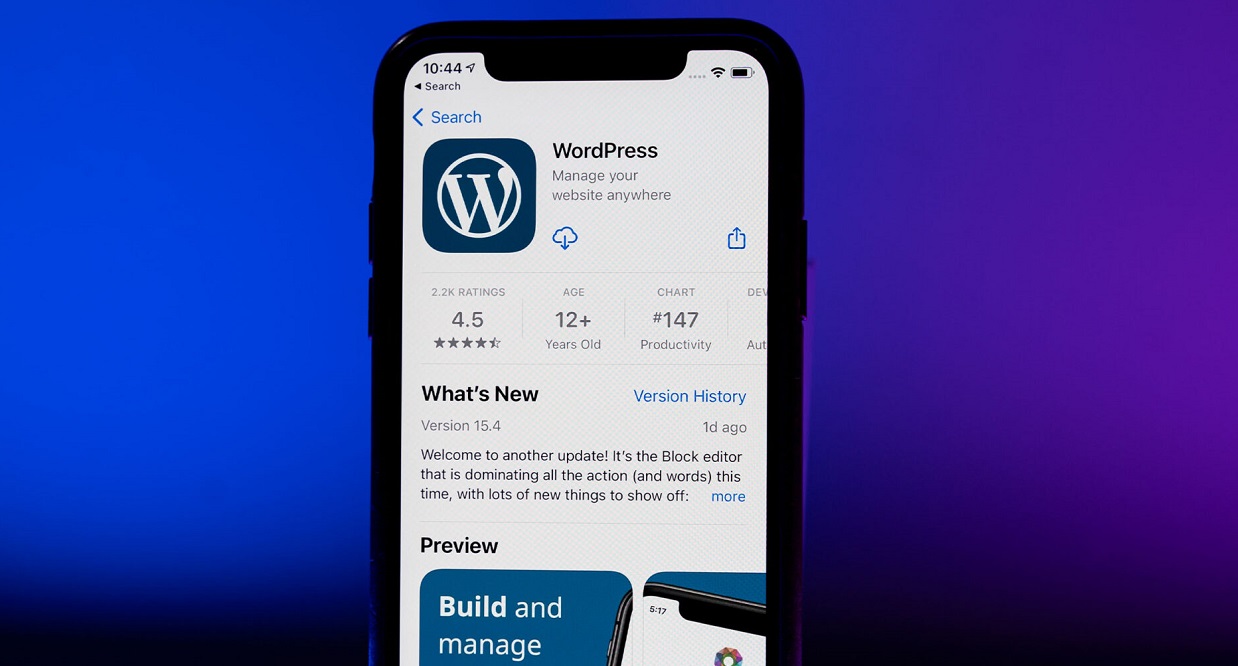Initially, Apple blocked WordPress updates. It later came to an agreement with the WordPress founder to add ‘in-app purchases’ to iOS. Apple, out of nowhere, issued a statement of apology and withdrew the requirement to add ‘in-app purchases’ to the WordPress app.
WordPress allows its users to create websites and sell domain names. The app version helps users to manage and build a free website right away from their phone. Recently, WordPress founder Matt Mullenweg accused tech-giant Apple of cutting off updates on the WordPress iOS app.
“Heads up on why @WordPressiOS updates have been absent… we were locked by App Store. To be able to ship updates and bug fixes again we had to commit to supporting in-app purchases for .com plans. I know why this is problematic, open to suggestions,” Matt tweet on the social media platform.
WordPress iOS App
The iOS version of WordPress is basic and doesn’t have many added functions as compared to the capability of WordPress’s content management system. Apple WordPress app doesn’t sell anything on its platform and allows users to create a simple free website.
The app doesn’t provide an option to buy a dot-com or dot-in domain nor dot-blog name on the phone. The app provides users with a free WordPress domain name and 3GB of space. WordPress is used by many organizations to build and maintain their websites as it is cost-effective and easy to develop a website using WordPress themes.
However, building a website on a mobile app is not possible considering various requirements that are needed. An app version of WordPress only offers a basic website with fewer options and doesn’t include any purchases on it as a user cannot do anything special on it.
Apple’s cut on iOS apps
Apple is facing immense public backlash from small and large developers against its tax policy. On the Apple store, a user is free to host apps, however, Apple charges a 15-30 percent commission on certain purchases made on the iOS app. Many see this as exploitation by Apple and store apps due to the decreasing sale of its devices and added pressure to maintain valuation.
For example, when a user purchases a premium subscription to Spotify on the iOS app, Apple takes a 30 percent cut on the purchase. “Developers earn 70% of sales from in-app purchases, and Apple collects a 30% commission,” says Apple on its website.
Commission cuts to the Apple store have become the primary driver of growth in recent years for Apple. The company collected nearly $275 billion dollars in year-on-year sales. The same commission has become a headache for the company due to fury from app developers and lawsuits from consumers.
Apple blocks WordPress app updates
After Mullenweg spoke publicly about the block of updates on the WordPress app: He spoke to The Verge and said he was no longer going to fight and would add new in-app purchases to the WordPress app. Offers such as ‘buying a domain name within 30 days’ will be added,
Later, Apple agreed to release the stalled updates, and users received an update after the agreement. It is clear that Apple successfully forced an app developer who hosts an app on the Apple store so it could increase its revenue.
Then comes an apology
Apple forced WordPress to sell premium plans and custom domain names on the iOS app so it could get its 30 percent commission cut. Later, when Apple decided to back off, it issued an on-the-record apology, which is pretty rare.
The apology statement clarifies that WordPress doesn’t need to add ‘in-app purchases’. “We believe the issue with the WordPress app has been resolved. Since the developer removed the display of their service payment options from the app, it is now a free stand-alone app and does not have to offer in-app purchases. We have informed the developer and apologize for any confusion that we have caused,” read the statement.

